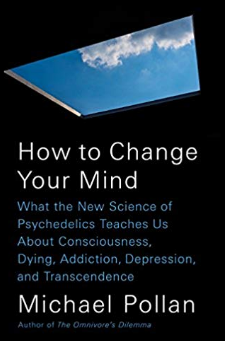
Don’t forget to check out our NEW schedule here!
You may know New York Times bestselling author Michael Pollan from his previous books including Cooked, Food Rules, In Defense of Food, The Omnivore’s Dilemma, and The Botany of Desire. He’s become an expert in his various fields by doing what many other authors and journalists refuse: diving head-first into his subject material and trying on the philosophy for himself. In this deeply researched book, “How to Change Your Mind: What the New Science of Psychedelics teaches us about Consciousness, Dying, Addiction, Depression, and Transcendence”, Michael goes beyond passive research and decides to include himself as a test subject. Below are the 5 Things we Learned (and loved) from the book.
1.Psilocybin may have been a catalyst for human language development.
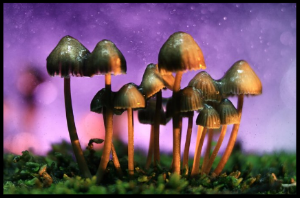
“Psilocybes gave our hominid ancestors “access to realms of supernatural power,” “catalyzed the emergence of human self-reflection,” and “brought us out of the animal mind and into the world of articulated speech and imagination.”
Language, he contends, represents a special case of synesthesia, in which otherwise meaningless sounds become linked to concepts. Hence, the stoned ape: by giving us the gifts of language and self-reflection psilocybin mushrooms made us who we are, transforming our primate ancestors into Homo sapiens.
2. The psychedelic experience can be “tuning in” to a different frequency or vibration.
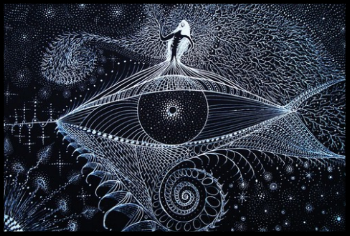
For those of us that trip regularly, one shared experience seems to be the inability to explain what happened! We are trying to explain complex systems, patterns, visions, words, meanings, and messages with our limited language.
“On this question, he holds with Henri Bergson, the French philosopher, who conceived of the human mind as a kind of radio receiver, able to tune in to frequencies of energy and information that exist outside it. “If you wanted to find the blonde who delivered the news last night,” Richards offered by way of an analogy, “you wouldn’t look for her in the TV set.” The television set is, like the human brain, necessary but not sufficient.”
3. A Good Guide is of the Highest Importance
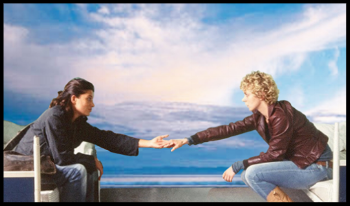
Even if you are new to the world of psychedelic healing, you may have heard the term “set and setting”. This, naturally, refers to taking careful account of your mindset and the physical setting in which you will be taking these powerful medicines. The people you’re around, the area you’re sitting, and the state of mind you’re in once you start a journey will all have a big effect on the outcome and the trip itself.
“I can’t emphasize how important it is to have a guide,” he says to The Sydney Morning Herald, “to prepare you, escort you through the journey and be there if you get into trouble – and people do. Also, a good guide will help you integrate the experience into your life.” For Pollan, this meant learning to meditate: “It’s about turning these moments of illumination into daily practice.”
4. The psychedelic experience can be life-changing.
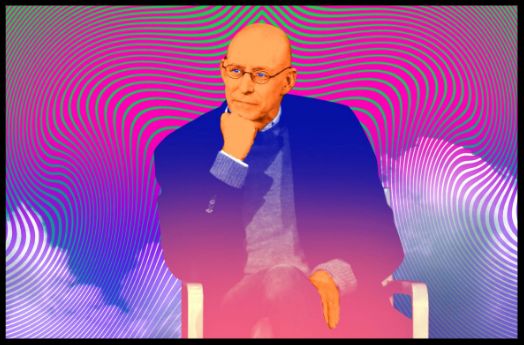
Because many of us have tried these medicines in a recreational setting or at a time in our lives when we were otherwise immature, psychedelics have taken on the unfortunate costume of silliness mixed with frivolity. However, many more serious, scientific studies are beginning to show that we may have been terribly wrong about the long-lasting and powerfully healing effects of these substances on our brains, bodies, and future happiness.
(In the Johns Hopkins study) “participants ranked their psilocybin experience as one of the most meaningful in their lives, comparable “to the birth of a first child or death of a parent.” Two-thirds of the participants rated the session among the top five “most spiritually significant experiences” of their lives; one-third ranked it the most significant such experience in their lives.”
5. A Happy Brain is a Flexible Brain
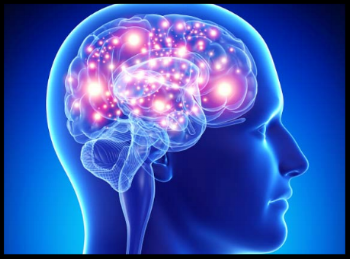
Whether your interests are scientific, philosophical or purely skeptical when it comes to the healing powers of psychedelics, not many will deny that a highly functioning and flexible brain leads to a healthier life. What does it mean to have a flexible brain?
“A happy brain is a supple and flexible brain, he believes; depression, anxiety, obsession, and the cravings of addiction are how it feels to have a brain that has become excessively rigid or fixed in its pathways and linkages—a brain with more order than is good for it. On the spectrum, he lays out (in his entropic brain article) ranging from excessive order to excessive entropy, depression, addiction, and disorders of obsession all fall on the too-much-order end. (Psychosis is on the entropy end of the spectrum, which is why it probably doesn’t respond to psychedelic therapy.)”
Here are some of our favorite podcasts and interviews with Michael Pollan here…
Michael Pollan on the Joe Rogan Podcast: “Michael Pollan is an author, journalist, activist, and professor of journalism at the UC Berkeley Graduate School of Journalism. His new book “How To Change Your Mind” is available now.”
Tim Ferris interviews Michael Pollan
From Tim’s Youtube channel: “This is the first podcast interview Michael has done about the book, the science and applications of psychedelics, his exploration, and his own experiences. It is a wild ride.”
“In fact, partially due to this book, I am committing a million dollars over the next few years to support the scientific study of psychedelic compounds. This is by far the largest commitment to research and nonprofits I’ve ever made, and if you’d like to join me in supporting this research, please check out tim.blog/science. In our wide-ranging conversation, we cover many things, including: The fundamentals of “psychedelics,” what the term means, and what compounds like psilocybin, mescaline, and others have in common. New insights related to treatment-resistant depression, anxiety, alcohol/nicotine dependence, OCD, PTSD, and more. Recent scientific and clinical discussions of a “grand unified theory of mental illness.” Potential applications and risks of psychedelics. Michael’s own experiences — which he did not initially intend on having — and what he’s learned from them.”
KEYWORDS:
- Michael Pollan how to change your mind podcast
- Michael Pollan how to change your mind pdf
- Michael Pollan how to change your mind audiobook
- Michael Pollan how to change your mind pub
- Michael Pollan how to change your mind quotes
- Michael Pollan how to change your mind youtube
- Michael Pollan how to change your mind ebook
- Michael Pollan how to change your mind reddit
- Michael Pollan how to change your mind audiobook free
- Michael Pollan how to change your mind netflix
- Michael Pollan how to change your mind food rules
- Michael Pollan how to change your mind documentary
